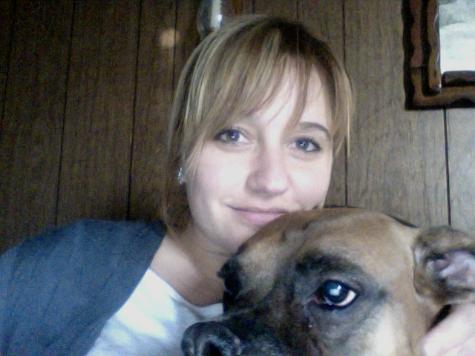News
Soldiering On
GSSW student and Naval Reserve Carla Giglio’s Fight to Foster Mental-Health Awareness in the Military

At 37, second-year Graduate School of Social Work (GSSW) student Carla Giglio has only begun her journey. Going forward, a huge part of that will involve helping individuals who are finally coming home from tours of duty overseas. Last spring, the lifelong Queens resident took a several-months break from school and enlisted in the U.S. Navy, completing boot camp shortly thereafter. This fall, she’ll be among the lucky few GSSW participants in a new Touro scholarship initiative that offers hands-on experience rehabilitating returned combat soldiers. It will be plenty to juggle for the active Naval Reservist and part-time student (Giglio completes reserve training one weekend a month while taking classes) but it also presents a singular opportunity to advance her qualifications as a social worker looking to heal veterans.
While Giglio is the latest in a family legacy of military personnel, she isn’t seeking combat. Her aspiration is to ensure that those who serve and protect come home to an empathetic, nurturing environment where those in need of diagnoses and treatment for PTSD, or a myriad other disorders, don’t fall through the cracks.
“I’d really like to be know what they go through, so they can feel more comfortable speaking, because I understand the language and the culture and the life,” she explains. It wasn’t an immediate epiphany. After earning an undergrad degree in Psychology from Queens College in 1999, Giglio recalls, “I wasn’t sure what I wanted to do, so I just kind of worked regular jobs, and then when I started settling down, getting older and focusing on what I wanted to accomplish, I realized I’d like to take my psychology further [and] I discovered social work.”
Like so many pursuing social work, Giglio’s personal experiences led to her interest in trauma. “I’ve been able to overcome, so I’d like to really dedicate myself to helping other people overcome problems. You’re life doesn’t have to be ruined. You can really heal. So I’d like to help other people heal.”
The GSSW scholarship will only widen Giglio’s understanding of general psychology and make her more versatile within the Navy’s ranks, even if the experience might prove daunting at first. “There are all different types of trauma,” she says. “Trauma can be anything, from car accidents to child abuse to rape. That’s why she’s at Touro, because as she puts it, the prospect of “going into situations really not knowing that much about certain other afflictions and how to handle that and how to handle the peoples’ emotions is a little nerve-wracking.”
Primarily though, Giglio remains an advocate for broader compassion toward victims of trauma within the armed forces, particularly timely as we begin to grapple, as a society, with the complicated emotions of ex-soldiers. And once she’s graduated GSSW and wrapped up Reserve training, her intention isn’t just to assist individual soldiers and veterans, but impact progressive global changes amid military culture from the inside.
“Mental-health awareness as a whole has to be more embraced instead of shunned,” Giglio sums up. “In the military, when you hear PTSD is a mental illness, people shy away and it’s stigmatized. [That’s] less now obviously, but still, the last thing you want to do is go tell your military doctor that you’re having these problems. But I would just hope that, now, the culture is a little more lenient toward the whole idea that these issues [are] temporary and there is help for them, and we’re human. We all have problems, but we don’t have to be destroyed by them.”

